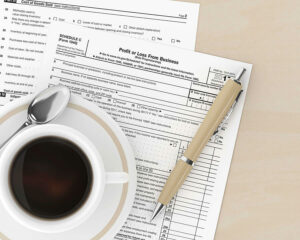
Hotels can definitely turn the tables around if they encounter bad reviews simply by having an adequate strategy to respond to them, carefully analysing these free insights, and acting upon accounting them.
- Current month results only reflect the performance of the hotel for the particular month.
- Hotels are increasingly investing in eco-friendly practices and infrastructure to reduce their environmental footprint.
- Look for trends in market segment performance, negotiated account pickup, dramatic ADR or RevPAR fluctuations, or other unusual trends.
- Many hotels use forecasting to make informed decisions in inventory, staffing levels, and of course, pricing.
- This data should encompass various key performance indicators (KPIs) such as room occupancy rates, average daily rates (ADR), revenue per available room (RevPAR), and customer acquisition costs.
- Set achievable financial goals that align with your hotel’s strategic objectives.
The three ways to budget for expenses
- They require extensive research, feasibility studies, and return-on-investment analyses before approval since they impact future profitability significantly.
- This way, you can catch any budget shortfalls early and adjust the budget to stay on track.
- It serves as a high-level overview of the entire organization’s financial health, enabling senior executives to evaluate overall profitability and set long-term strategies.
- Several emerging trends are likely to shape hotel budgets in the years to come.
- Having a financial plan in place helps hotel managers control costs and ensure the hotel’s operations run smoothly.
- Inventory management is the practice of managing inventory to ensure optimal pricing and availability.
- With an annual hospitality budget, you have a reference to return to for overseeing and controlling everyday spending.
All things that require the owner and/or hotel manager to virtual accountant be constantly on top of budgeting. Renovations, equipment purchases, and other expenditures can heavily impact your budget, so you need to plan for them. A hotel should estimate these costs and prioritize them based on their impact on total revenue or guest satisfaction. With GOPAR, You get to value both inflow and outflow of revenue and see if your hotel is really a profit-making asset. Identifying this can be a huge milestone in your business budget planning session.

Incentives to align around profitability
In this article, we will explore what a hotel budget entails, key steps in the budgeting process, best practices for format and preparation, and tips shared by hoteliers on effective budget allocation. Creating a hotel budget requires historical data on operating costs, which helps to identify trends and generate an estimate based on past years. Other necessary data includes production data, which can be segmented by rate plan, room type, source hotel budget and guest profile. This data is typically found in a company’s project management system, accounting software or business intelligence solution. Creating hotel budgets is a critical and fundamental management practice that enables effective planning, resource allocation and decision-making. A variety of steps and considerations are necessary in the budget-creation process, including gathering the appropriate and relevant data, forecasting and making necessary adjustments along the way.
Budget Hotel Case Study: Real-World Insights
- Finally, Lund encourages hotels to ensure they’re investing in marketing to create demand that will be captured by smart revenue strategy.
- Setting specific, measurable, achievable, relevant, and time-bound (SMART) goals is crucial for the success of any hotel’s budgeting process.
- A hotel should estimate these costs and prioritize them based on their impact on total revenue or guest satisfaction.
- Analysing past data and trends provides invaluable budget insights for hoteliers to identify opportunities and areas that need improvements.
- This feedback is important for hotels to make informed budgeting decisions that align with their commitment to delivering an exceptional guest experience.
- Experts predict that the struggle will continue well into 2025 or until true recovery kicks in.
- For example, the COVID-19 pandemic underscored the vulnerability of traditional forecasting models, as historical data became less reliable in predicting future demand.
A department budget analyzes fixed and variable expenses of a particular hotel department, such as marketing, sales, finance and operations. These budgets are created for every department across the business and include all expenses, such as maintenance and employee wages. Hotel budgets also function as a portal for executives into how the hotel is being managed. Use the operational needs and revenue potential of each department as a guideline and allocate funds accordingly.
- This example demonstrates how a flexible budget allows for adjustments based on real-time operational data.
- The incremental budgeting method is where they collect the revenue and expense data of the current year and conduct business budget planning for the next financial year.
- She entered the hotel world in 2013 as a housekeeping team member and worked her way through various departments before being appointed to Director of Sales.
- This minimizes errors and streamlines the process of reviewing and approving costs.
- The Uniform System of Accounts for the Lodging Industry (USALI) is a standardised financial reporting framework.
- For preparing these spreadsheet reports, they consider terms like occupancy rate and average daily rate for both on and off-seasons.

This approach can be particularly beneficial in a tourism context where costs are directly tied to tourist activities and peak seasons. For instance, a resort might analyze its historical data to find that water sports are highly popular in the summer. The management allocates additional budget to enhance water sport facilities and hire seasonal staff, ensuring they capitalize on the busy season effectively.

Common mistakes when creating a hotel budget and how to avoid them
If you rely on tour guides and agents for recommendations and bookings, their commission is a part of your expense structure. It’s a prerequisite to constantly modify and decorate the property to suit the occasion and customer’s liking. Other than small do-ups, some involve big investments like changing the furniture or redesigning the garden area. The monthly or annual subscription should be a part of your hospitality budget.

Provides a Basis for Performance Measurement
This includes energy-efficient lighting and HVAC systems, water-saving technologies, waste reduction measures and the use of renewable energy sources. Hotel budgets will likely allocate funds for implementing and maintaining these sustainable initiatives going forward. Additionally, hotels may invest in eco-certifications and marketing efforts to attract eco-conscious travelers. Hotel budget trends are influenced by various factors, including changes in consumer preferences, advances in technology and shifts in the broader economy. Several emerging trends are likely to shape hotel budgets in the years to come. Neglecting to budget for an emergency fund can negatively impact a hotel should an unexpected event occur.
Leave a Reply